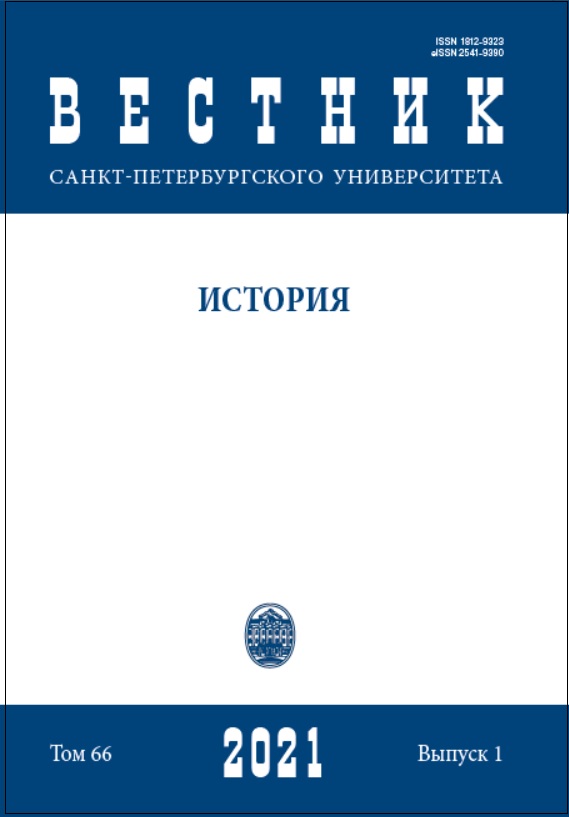Debates on the Peasant Question in the Nikolaevan Era
DOI:
https://doi.org/10.21638/spbu02.2021.118Abstract
A large scholarly literature exists about plans for a peasant reform in the reign of Nicholas I. However, the most important archival documents about the debates on the peasant question remain unpublished. The new book by T. V. Andreeva seeks to fill this lacuna. The book begins with a historical survey of the six government committees that were tasked with planning reforms, followed by an extensive collection of archival documents of both official and private provenance. In the debates under Nicholas I, the specific problem of serfdom was folded into the larger question of the social position of the peasants, which the government regarded as a source of both political instability and economic backwardness. The solution that officials envisioned was a reform that was comprehensive, multi-faceted, and gradual. Step-by-step, the evolution that had led to creation of serfdom from the 17th century onward was to be reversed: the landlords were gradually to lose their power over the person of the serfs, who were to be attached only to the land itself. Eventually, the serfs were to be emancipated with land; in the meantime, restrictions on the power of landlords and a comprehensive reform of the state peasants were to serve as preparatory steps. According to Andreeva, the vision of Nicholas and his advisors was too limited and conservative, and premised on the mistaken belief that it was possible to modernize the country without touching the core of the sociopolitical system.
Keywords:
serfdom, state peasants, peasant question, secret committees, Nicholas I, Great Reforms, P. D. Kiselev
Downloads
Downloads
Published
How to Cite
Issue
Section
License
Articles of "Vestnik of Saint Petersburg University. History" are open access distributed under the terms of the License Agreement with Saint Petersburg State University, which permits to the authors unrestricted distribution and self-archiving free of charge.





